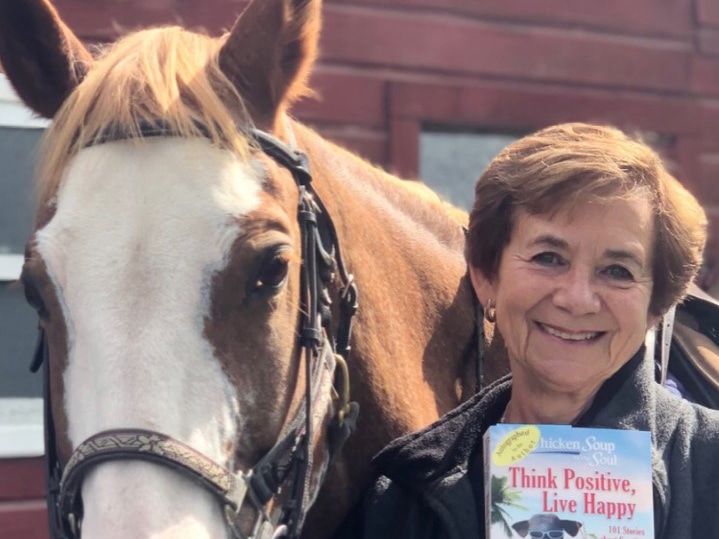
People
“Frances 2.0”: Adapting with Grace
In 2005, Frances McGuckin was at the peak of her career. She had written two very successful business books and was recognized as a global expert in small business. She was a sought-after motivational speaker and consultant, traveling across North America for various engagements. She lived on a beautiful property in Langley with her family, horses and animals, and her 95-year-old mom.
Then the accident happened. Frances was driving, on her way to a dinner with a friend, when a vehicle ran a red light. There was no way to avoid a collision. She remembers ending up in the middle of the intersection but doesn’t remember hitting her head on the steering wheel. In shock, Frances could see no visible injuries and because of that she declined the offer to go to the hospital.
“It wasn’t until the next day that I started feeling really out of it and had a terrible headache,” she says. “My doctor was away so I went to a local clinic. The doctor there had his own experience with a head injury and he told me that I had post-concussion syndrome.”
Counting the Cost
In pain and greatly suffering, it wasn’t until six months later, that she was referred Dr. Raymond Ancill. A psychiatrist in Abbotsford specializing in head injuries, Dr. Ancell diagnosed 18 out of a list of 20 post-concussion symptoms and she was officially diagnosed with an acquired brain injury (ABI.) When Frances’ head hit the steering wheel, she sustained a contra-coupe injury which damaged the cognitive area between her eyes and at the back of her head, the areas responsible for cognitive and executive functions. Along with the physical pain and headaches, Frances experienced anxiety, panic attacks, and depression. At her lowest, she was suicidal.
“The brain injury cost me my global career and deeply impacted my family relationships. I spent 10 years grieving my loss, trying to be the same person I was.” – Frances, brain injury survivor
In 2009, after a contentious divorce, she moved from her home in Langley to the Sunshine Coast, taking her 100-year-old mother with her. In hindsight, she views this move as a mistake made in poor judgement. There, desperate for help, she accessed support through Coastal Mental Health and their Acquired Brain Injury program.
Starting Fresh
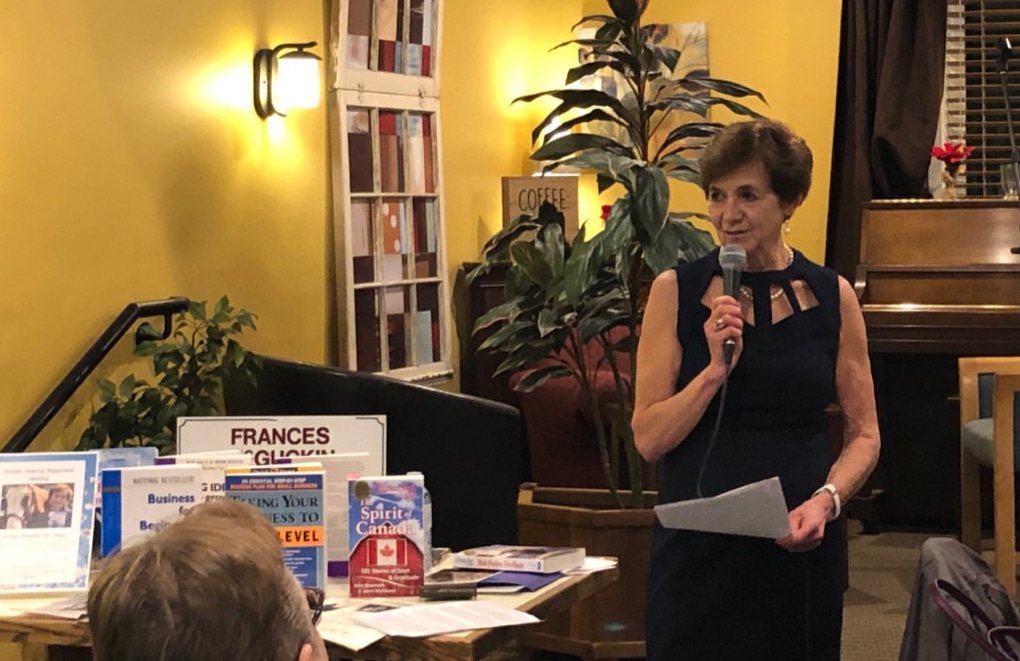
Feeling isolated and for health reasons, she moved back to the Fraser Valley in 2015, settling in Abbotsford where she could be closer to her family, including her two teenage grandchildren. She connected with the Fraser Valley Brain Injury Association (FVBIA) and joined a small writer’s group. In 2017, she had two stories about living on the Coast published in Chicken Soup for the Soul: the Spirit of Canada. In 2019, she had another story published in Chicken Soup for the Soul: Think Positive, Live Happy, focused on volunteering with children and with therapeutic horses.
“I said I would never write or speak again,” said Frances. “The editors receive thousands of entries but they only publish 101 stories per book, so the fact that I had two stories in one book accepted was amazing. That really made me feel like I was back.”
Making Connections
She began building friendships with others at FVBIA. When the pandemic hit, It was her friend Judy who introduced her to Communitas Supportive Care Society. Frances joined Zoombaya, an online community created by Communitas as a way to stay connected and engaged. For Frances, it became a lifeline.
“Judy told me about all the wonderful people and the variety of online activities they do,” she says. “It sounded like something I wanted to be a part of. It saved my sanity as I live alone and was feeling so isolated. Having daily activities and connections has been fantastic and I’ve made some great friends, some of whom I have already met in person!”
Extending Grace
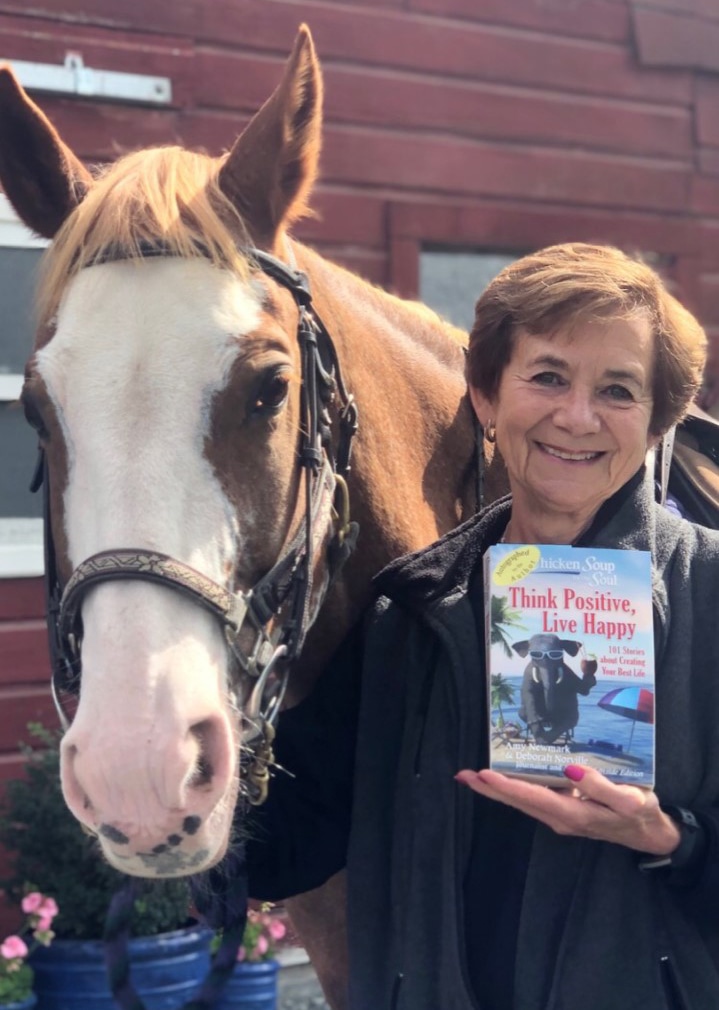
Today, Frances continues to grow and adapt to the challenges with which she lives. She still suffers from short-term memory loss and experiences dyslexia when she types. Right and left, up and down, front and back functions get mixed up. Focus is a challenge for many brain injury survivors. Frances has a hard time reading and absorbing material. She writes and edits a little when she can focus. Setting daily challenges and tasks helps her stay motivated and she works at exercising her brain with Scrabble and crosswords. Volunteering helps her look beyond herself to serve others. Practicing gratitude and appreciating the simple things in life makes a difference. And while the pandemic increased her anxiety and depression, she copes by finding things that give her purpose, giving herself lots of grace and being more accepting of the new person she has become.
“I have finally accepted the simpler 2.0 version of myself. Me and I get along now – most of the time,” she laughs.
For anyone wanting to support a survivor living with a brain injury, Frances encourages people to educate themselves about ABI and learn what’s needed to offer support. She also offers this advice.
“It’s important for friends and family to know that in order to heal, we need a positive environment,” she says. “Be patient. Show compassion and empathy. It’s often hard for survivors to ask for or accept help, so take the initiative and offer it.”
Related Stories
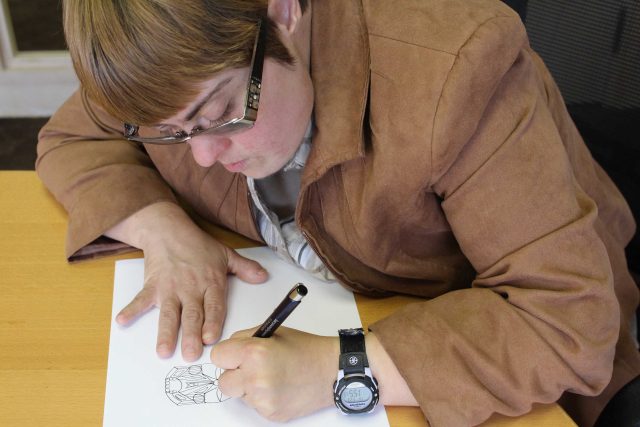
Artist Creates Unique Colouring Book
Kara-Lyn Loewen has used her talents to create a unique colouring book. Find out how you can get your copy today!
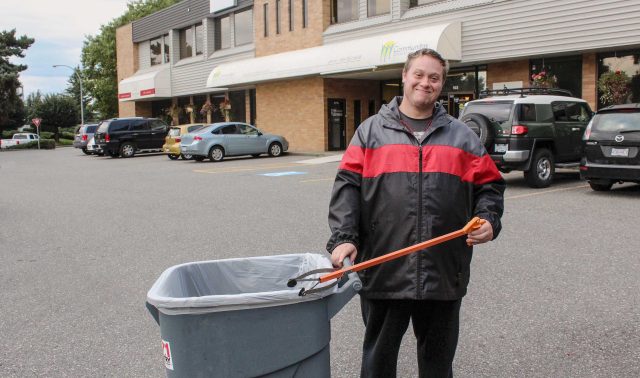
Keeping It Clean
If you’ve noticed that the litter on your street has been picked up, the errant shopping cart is no longer on your lawn or the broken streetlight has been repaired, you might have Shane Toy to thank for that.
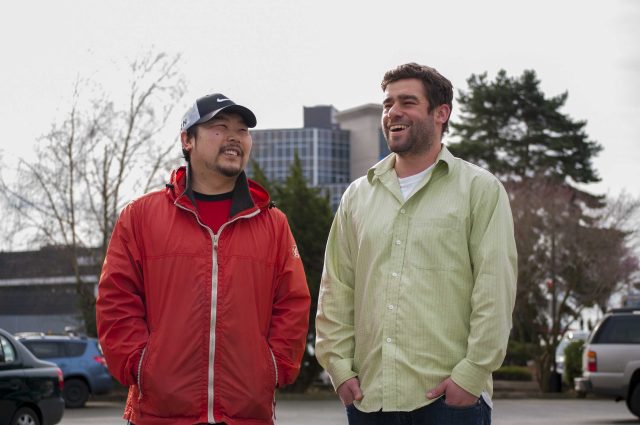
On the Path to Wellness
Brian and Micah feel it is important for the church to talk about mental illness and create safe places for people to share their stories